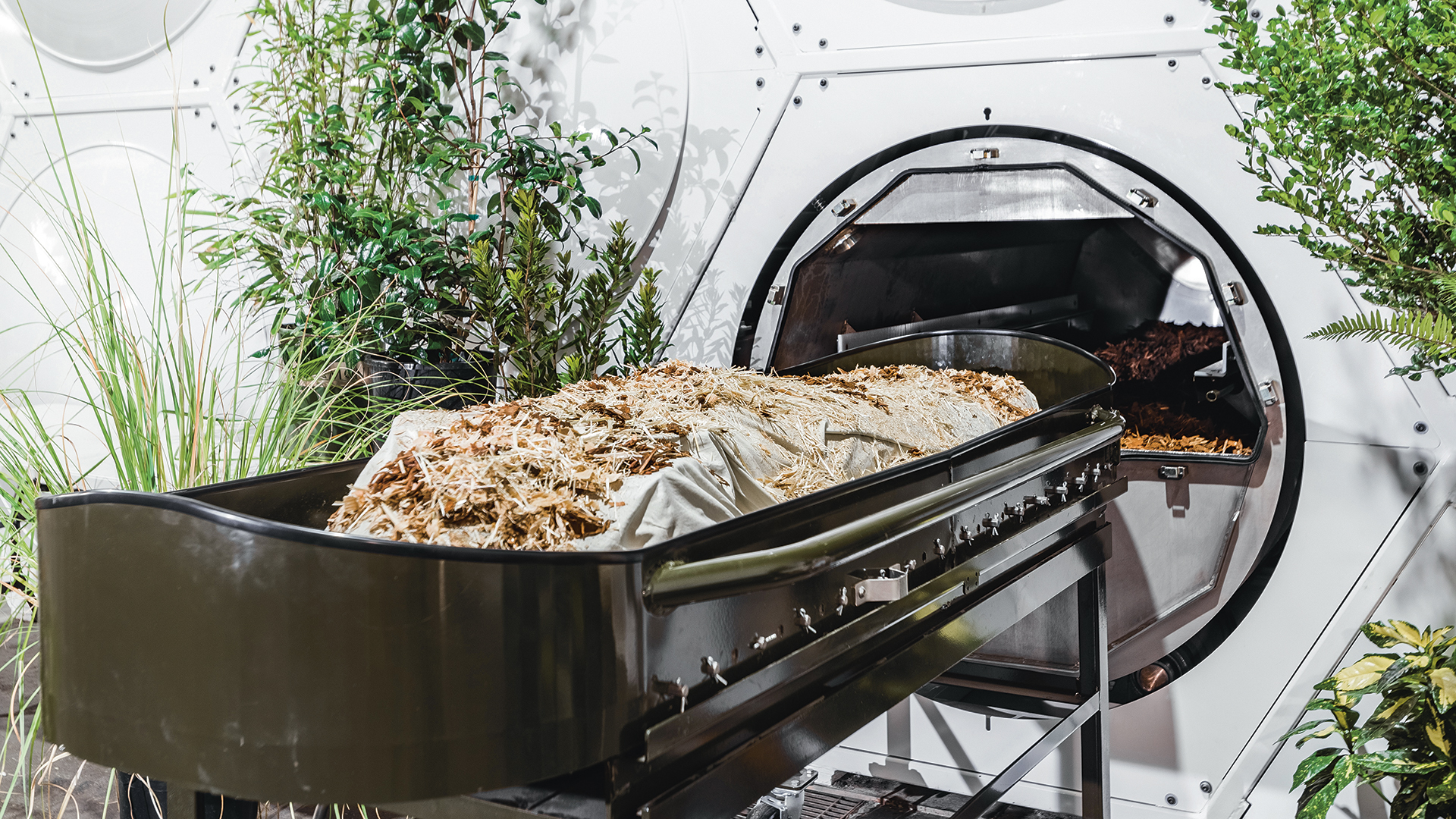Ashes to ashes, dust to dust. But what’s the most efficient way to return to that state after our demise? While three quarters of people in the UK who face the final curtain get cremated, the environmental impact is immense. Some are now considering another form of disposal to fight the climate crisis: human composting.
Human composting, also known as terramation, involves a body being put into a metal container along with wood chips, straw and alfalfa. After eight to 12 weeks, a person’s loved ones are left with a pot of soil to take home, which they can use to grow flowers or a tree in their garden or spread the soil on local woodland.
Andrew Purves, director of William Purves Funeral Directors in Edinburgh, considers human composting a more eco-friendly form of burial. He told The Big Issue: “If you bury somebody in the ground, it’s going to take years and years and years for the natural processes to happen to make that person decompose and disappear completely. Human composting speeds that whole process up but doesn’t take up precious space or use a lot of energy to do so.”
Each cremated body releases around 250kg of carbon dioxide into the atmosphere, almost equivalent to emissions released on a flight from London to Rome. Lily Wood also works in the funeral industry and is aware of the environmental issues that cremation and burial comes with, leading her to consider alternatives. That’s when she discovered human composting.
- How nature recovers even after humans have done their worst
- Britain is facing an invisible extinction of biodiversity
- The Environment Act targets have been published. So what do they really mean?
Your support changes lives. Find out how you can help The Big Issue help more people by signing up for a subscription
“Being someone who tries to take steps to leave as little of an impact on the environment as possible, I was intrigued when I heard about the human composting movement,” she said. “I love the idea of my descendants planting a tree with soil made from my remains and whenever a next generation passes on, they add to the soil. It adds a new meaning to the term family tree,” she added.









